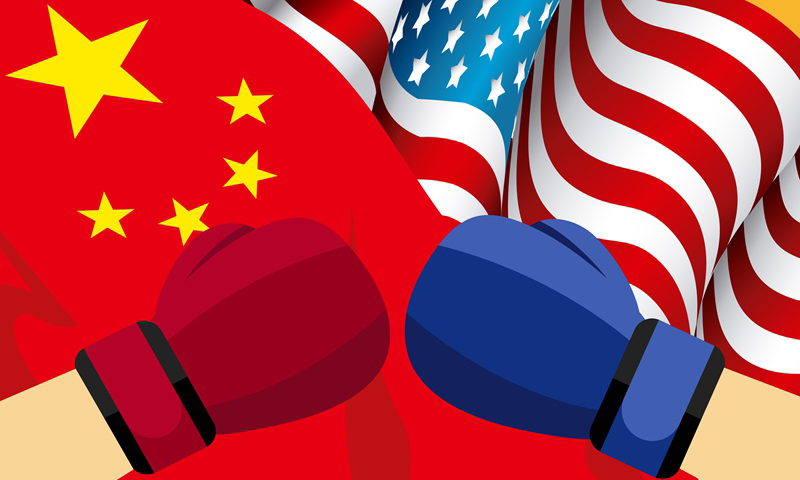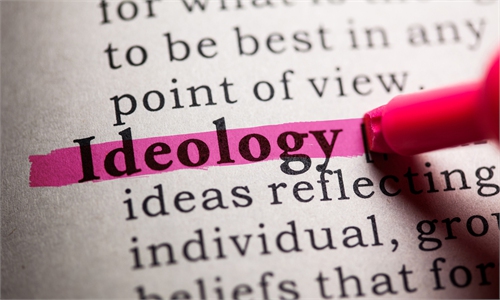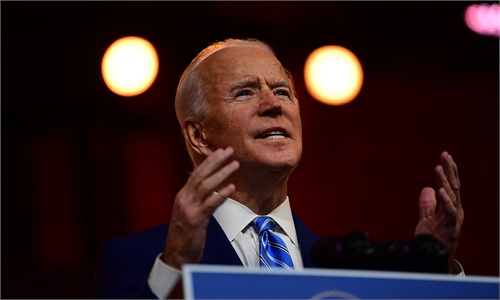
China US Photo: GT
Richard Hanania, a research fellow at Defense Priorities, a Washington-based think tank, published on December 14 an article in Palladium Magazine, a media outlet based in the US. In the article entitled "China's real threat is to America's ruling ideology," Hanania argued, "China's true menace is neither military nor geopolitical, but rather ideological. Its continuing success… poses a major threat to the American political establishment."
The West, led by the US, has long hyped the "China threat" theory. It is a fact that Beijing and Washington adopted different political systems and their corresponding ideologies significantly diverge. The political path of a country is determined by its national conditions. As long as the political system suits the country and it can satisfy its people, it can be seen as a good one. Other countries have no right to point an accusing finger. Despite the big differences, the overlap of interests between China and the US should allow the two countries to peacefully coexist, but the US has refused to do so.
Sun Chenghao, a research fellow with the Institute of America Studies, China Institutes of Contemporary International Relations, told the Global Times on Sunday that the primary reason Washington has repeatedly underlined its ideological divergence with Beijing is that Washington has become less confident in its political system and path.
On the contrary, China has rapidly risen in recent years and has made remarkable achievements in various domains. Especially when the novel coronavirus pandemic has seriously impacted the West including the US, China has effectively curbed the spread of the disease.
In an op-ed entitled "The Power Delusion," published by Foreign Policy magazine, author Matthew Kroenig, deputy director of the Scowcroft Center for Strategy and Security at the Atlantic Council, said some prominent US thinkers contend that the US would still be worried about China's rise "even if it [China] were a democracy."
Exactly.
In the 1980s, the US hyped the threat from Japan and imposed heavy penalties on some Japanese enterprises amid Japan's staggering rise. Japan is a country which adopted a so-called liberal democracy as the US does, but it did not prevent the US from treating it as a threat. Toward Japan, the US narrative was certainly not an ideological threat, but the greatest economic threat.
It can be concluded that the US emphasis on the ideological differences with China is merely an excuse by some US political elites to suppress China. The fundamental cause is that they worry China's rapid rise will pose a great threat to the global hegemony the US has enjoyed for decades.
There are many domestic frictions in the US, ranging from the ravaging epidemic to severe racism. Against this backdrop, Washington needs to forge an external foe to solidify its public. Emphasizing the "China threat" in terms of ideology is always politically correct in the US, and a decent way to divert domestic attention also.
From an international perspective, the US has recently spared no effort to build an anti-China alliance with "like-minded democracies" to encircle China. US attempts to highlight China's "ideological threat" are a way to unite more allies and partners to deal with China.
In comparison to the Republicans, the Democrats tend to stress ideology more. Sun said that as a Democrat, US president-elect Joe Biden is expected to attach more importance on playing up the "China threat" in ideology and crack down more on China in this field.
Beijing cannot change Washington's mind-set and its rhetoric on the so-called China's ideological threat. What China can do is to maintain its strategic determination and resolutely refrain from competing with the US in terms of ideology. In this scenario, the US cannot compete unilaterally.



